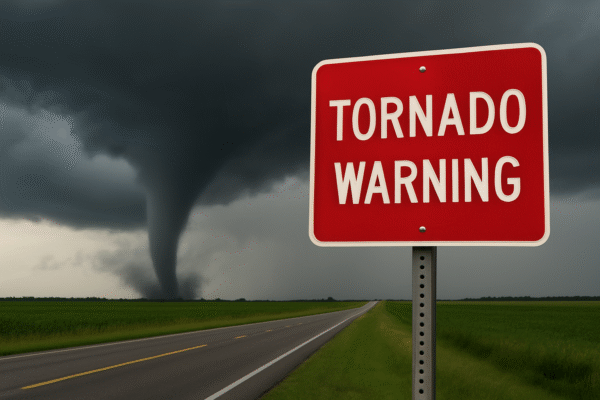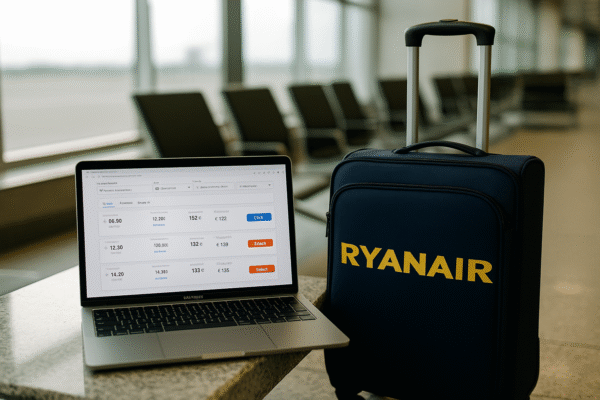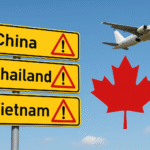As Spain continues to attract millions of tourists in 2025, growing concerns over tourist safety have prompted several countries—including Canada, the United States, the United Kingdom, Australia, and New Zealand—to issue coordinated travel advisories. These warnings highlight rising cases of theft, scams, and civil disturbances, especially in major cities such as Madrid and Barcelona.
While none of the countries have advised against travel to Spain, their updated guidance underscores the importance of exercising vigilance in busy tourist areas. The common objective across these nations is clear: safeguard citizens by promoting greater awareness in urban centres experiencing increasing petty crime and occasional unrest.
Canada’s Advisory: Exercise a High Degree of Caution
On July 17, 2025, the Government of Canada updated its travel advisory for Spain, now urging Canadians to “exercise a high degree of caution.” According to Global Affairs Canada, the shift is due to increased reports of petty theft, scams targeting foreign visitors, and the presence of civil demonstrations in tourist-dense areas.
Notably flagged areas include:
- Madrid: Puerta del Sol, Atocha train station, Gran Vía, Retiro Park
- Barcelona: Las Ramblas, Sagrada Família, Plaça de Catalunya, Barceloneta Beach
Canadian authorities warn of distraction scams, including strangers pretending to offer help or point out spills on clothing, and cases of impersonators posing as undercover police officers to inspect passports or wallets. Tourists are urged to request identification and avoid surrendering personal documents unless inside an official police station.
Similar Cautions from Allied Nations
United States
The U.S. State Department has maintained its “Level 2 – Exercise Increased Caution” advisory for Spain. It cites unpredictable public demonstrations, street crime in tourist hubs, and elevated risks during festivals and major events. Travelers are advised to:
- Avoid political protests
- Stay alert in crowded areas like transportation hubs and nightlife districts
- Not display valuables publicly
- Monitor news and local alerts via the U.S. embassy
United Kingdom
While the UK’s Foreign, Commonwealth & Development Office (FCDO) hasn’t escalated Spain’s risk level, it has released updated guidance emphasizing the threat of pickpocketing and the need for travel insurance. British travelers are reminded to remain aware in crowded transport stations, tourist attractions, and areas of nightlife activity.
Australia
Although Australia currently maintains a “normal safety precaution” level for Spain, the Department of Foreign Affairs and Trade (DFAT) has echoed other nations’ concerns about theft in urban centres. Australian tourists are advised to:
- Secure personal belongings, especially on public transport
- Be cautious when approached by strangers
- Follow instructions from local authorities if civil unrest arises
New Zealand
The New Zealand government places Spain at “Level 2 – Exercise Increased Caution,” noting ongoing protests and disruptions in public services. Travellers are urged to avoid demonstrations and ensure emergency travel plans are in place.
Top Safety Tips for Tourists Visiting Spain
To help travellers avoid issues, all advisory sources recommend the following:
- Travel Light: Carry minimal valuables and avoid flashing expensive gadgets or jewellery.
- Document Safety: Keep passports and important IDs in secure hotel safes. Carry only copies when exploring.
- Be Alert in Transit Zones: Airports, metro stations, and bus terminals are hotspots for pickpocketing.
- Watch for Scams: Be skeptical of overly friendly strangers or street performers drawing crowds.
- Avoid Protests: Steer clear of any political gatherings or strikes, particularly in capital cities.
- Use Trusted Transport: Opt for registered taxis or ride-share apps. Avoid unofficial airport pickups.
- Travel Insurance: Ensure your plan covers medical emergencies, theft, and trip delays or cancellations.
Why the Alerts Now?
The spike in coordinated advisories comes as Spain experiences a major rebound in tourism, particularly in post-pandemic years. With over 85 million international visitors expected in 2025 (as projected by Spain’s Ministry of Industry, Trade and Tourism), local resources have been stretched, and petty crime has risen in tandem with foot traffic in tourist-heavy zones.
Additionally, ongoing economic challenges and political demonstrations have caused occasional disruptions in Madrid, Barcelona, Valencia, and other cities. Public protests—while typically non-violent—have sometimes halted metro services and blocked main thoroughfares, inconveniencing foreign visitors.
Spain Remains a Safe but Cautious Destination
Despite these advisories, all nations affirm that Spain remains a safe and welcoming destination—provided visitors take common-sense precautions. The country’s rich cultural heritage, stunning landscapes, and vibrant culinary scene continue to captivate millions of tourists annually.
Spain’s Ministry of the Interior has also increased the presence of law enforcement in major urban centres and transport hubs during the summer travel surge. Local police patrols have expanded in zones like El Raval in Barcelona and around Retiro Park in Madrid to help deter street crime.
Final Thought: Stay Informed, Travel Smart
Whether you’re exploring Gaudí’s architectural wonders, dining in a hidden tapas bar, or relaxing along the Costa del Sol, your Spanish holiday can be both safe and enjoyable. As global advisories show, a little extra caution goes a long way in protecting your travel experience.
To stay informed, tourists are encouraged to:
- Monitor the local media and embassy alerts
- Register with your country’s traveler program before departure
Spain’s allure remains as powerful as ever—just travel wisely, keep your wits about you, and savour every moment.
For more travel news like this, keep reading Global Travel Wire



















